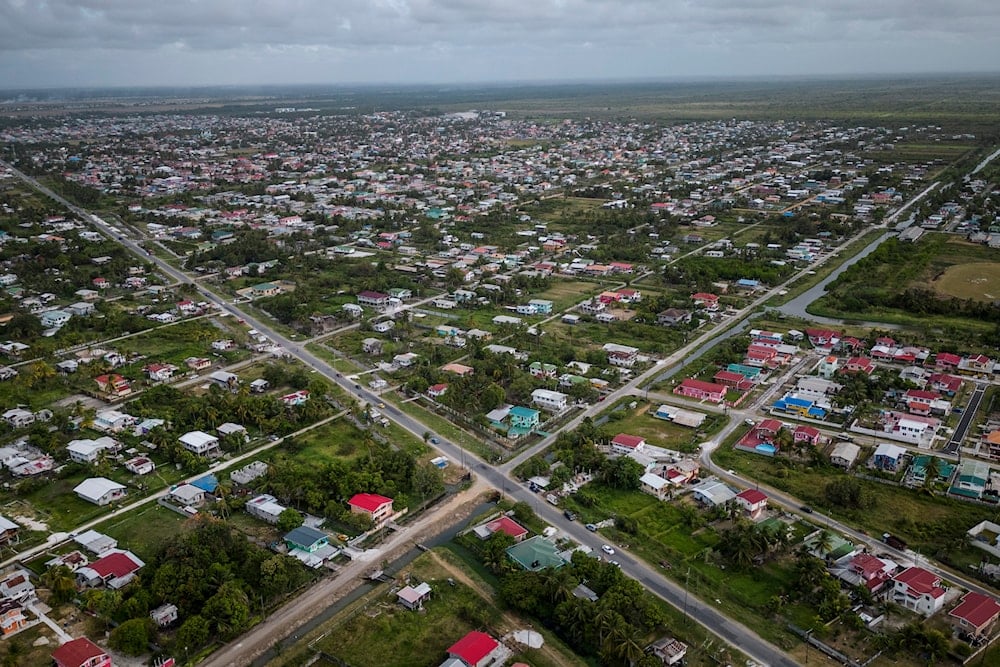Guyana expects to double oil production by 2030
Guyanese Minister of National Resources Vickram Bharrat states that Guyana aims to double its oil production by 2030, reaching 1.2 million barrels per day by 2027.
-

Homes stand in a residential area of Georgetown, Guyana, on Tuesday, April 11, 2023. (AP)
Guyanese Minister of National Resources Vickram Bharrat has stated that Guyana anticipates nearly doubling its oil production by 2030, increasing from 650,000 barrels per day to 1.25 million barrels per day.
"Currently we are producing 650 [thousand] barrels per day. We have three production licenses. We’ve already sold two more production licenses. So, we expect, by 2027 we’ll be producing 1.2 million barrels per day. Already Exxon ... is looking at the 7 projects. So in our view, by 2030 we should be over 1.25 million barrels per day," Bharrat told reporters on the sidelines of the India Energy Week.
Additionally, the minister added that Guyana is planning to harness its gas resources, adding that
"Gas is seen as more transitional, probably having a longer lifespan than oil in our estimation."
Bharrat also noted that the rise in oil and gas production will align with the growing demands of the Guyanese population, which has been steadily increasing.
Guyana's offshore oil sector has experienced significant growth following the discovery of new fields in recent years. The estimated oil equivalent of resources discovered thus far exceeds 11 billion barrels.
The Venezuelan-Guyanese land dispute originated in the 1800s when British colonizers, driven by the discovery of valuable resources in Essequibo, manipulated borders to form British Guiana (now Guyana). Despite historical evidence favoring Venezuela's claim, Western imperialism… pic.twitter.com/8uL7LnYqo9
— Al Mayadeen English (@MayadeenEnglish) December 5, 2023
History of the border dispute
Venezuela and the former British colony of Guyana, which is now a member of the Commonwealth of Nations, have had a long dispute over the oil-rich Essequibo region.
In April this year, Venezuelan Defense Minister Vladimir Padrino Lopez said Venezuela's armed forces maintain the country's territorial integrity and will continue to defend Caracas' claims to the Guayana Esequiba territory, which has been challenged by neighboring Guyana for over 100 years.
He tweeted that "the armed forces reaffirm their commitment to guarantee the territorial integrity of Venezuela. We have historical and legal reasons and all the will of the state of Venezuela to keep defending our legitimate claim over Guayana Esequiba. Esequiba is ours!"
Read next: Guyana: A crushing victory of the Venezuelan people
Back in 1966, both nations ratified the Geneva Agreement for a peaceful solution, but in 2018, Guyana filed a lawsuit with the International Court of Justice (ICJ) requesting legal recognition of the 1899 decision of the Paris Court of Arbitration which assigned the territory to Guyana.
The Geneva Agreement of 1966, registered at the United Nations, is responsible for regulating and solving border disputes between Venezuela and British Guiana, but none of the preliminary protocols has been ratified by Venezuela.
Venezuela offered Guyana in 1983 an opportunity to engage in direct negotiations, but Guyana has voiced its preference in seeking a solution through the UNGA, the Security Council, or the ICJ.

 3 Min Read
3 Min Read








